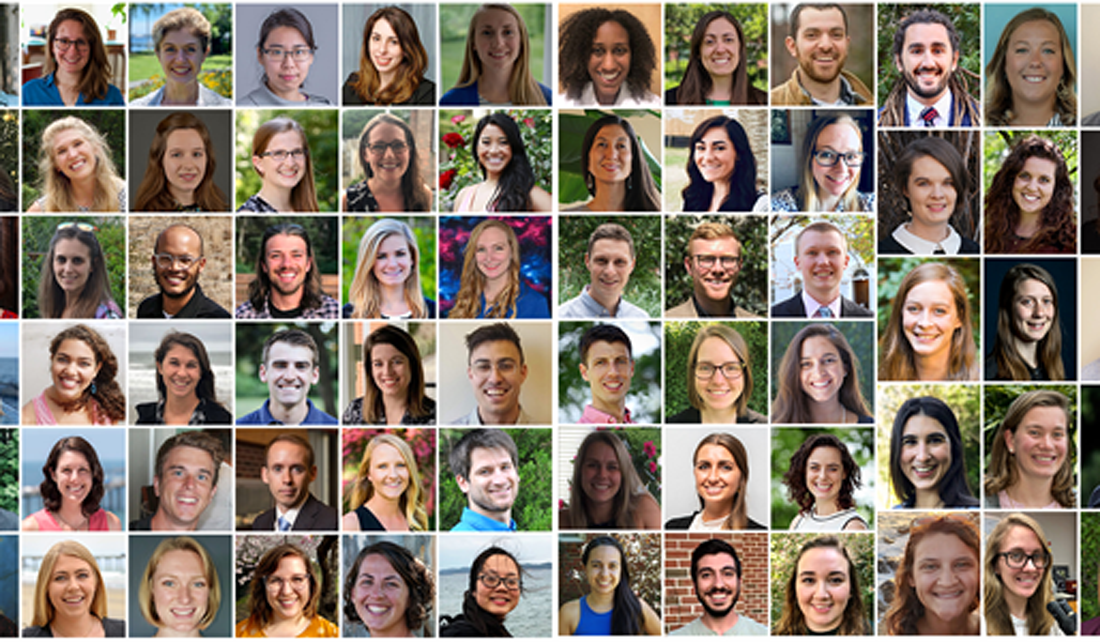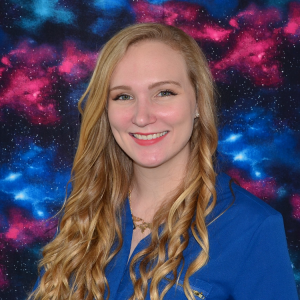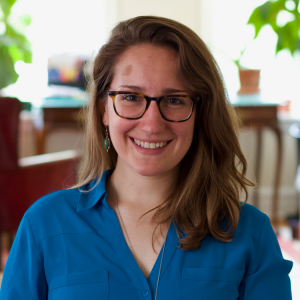
The National Oceanic and Atmospheric Administration (NOAA) and the National Sea Grant Office are pleased to announce the finalists for the 2020 class of the John A. Knauss Marine Policy Fellowship program. Since 1979, the National Sea Grant College Program has provided one-year fellowships working in federal government offices in Washington, D.C. to over 1,300 early-career professionals. The 69 finalists, including two sponsored by Illinois-Indiana Sea Grant, in the 2020 class represent 27 of the 34 Sea Grant programs.
“With each year and class, we continue to be more impressed with the Sea Grant Knauss fellows. They bring fresh perspectives and experiences to the coastal and marine science and policy work happening in D.C., and they continue to raise the bar for us all,” said Jonathan Pennock, National Sea Grant College Program Director. “Congratulations to the 2020 Knauss finalists!”
Illinois-Indiana Sea Grant’s sponsored finalists are Meredith Richardson and Emma Young.
Meredith Richardson received a bachelor’s degree in civil engineering with a minor in music from North Carolina State University and played on the women’s volleyball team during her undergraduate career. She has since completed a master’s in civil and environmental engineering from University of Illinois at Urbana-Champaign (UIUC), and is now working toward a doctorate in civil and environmental engineering at UIUC. Richardson works as a research assistant in the Department of Civil and Environmental Engineering and as a head coach at Primetime Volleyball Club. Earlier this year, she was an Illinois Section Nominee for the Outstanding Collegiate Award from the Society of Women Engineers.
“I’m a fourth-year PhD student at UIUC in the Water Resources Engineering & Science program,” said Richardson. “My research interests revolve around modeling and systems analysis in the areas of critical zone science, hydrology, ecosystem dynamics, human influence and environmental economics. After graduation, I would love to work at the intersection of research outcomes and societal needs. I strive for a career that provides leadership in environmental policy and opportunity to shape policy development and future research directions at the national level.”
Emma Young received a bachelor’s degree with honors in biology from Vassar College in Poughkeepsie, New York. She is now working on a doctorate in biology from the University of Missouri–St. Louis and has completed a graduate certificate in global biodiversity and leadership. Young works as an avian stewardship plan coordinator for the Audubon Center at Riverlands & U.S. Army Corps of Engineers, and she is a producer and host of The Story Collider Podcast. She also founded Science Distilled, a monthly happy hour and public lecture series in St. Louis.
Young studies avian malaria parasites, host and parasite interactions in the neotropical birds of Panama, and the roles that climate and habitat play in malaria infection. “I’m really excited to get the opportunity to delve into policy and marine science,” she said. “I’m an ornithologist and disease ecologist by training, and my dissertation involves everything from rainfall patterns to avian social habits—I love learning new things and broadening my understanding of the natural world! But what I care about more than anything else is doing science that can be used and shared; this can mean conserving habitats and species while also enhancing quality of life for the people who interact with those same systems. I hope that my experience in the Knauss fellowship helps me learn how to do that to the best of my ability, so I can continue to connect folks to the science going on around them every day.”
Knauss finalists are chosen through a competitive process that includes several rounds of review at both the state Sea Grant program and national levels. Students finishing Masters, Juris Doctor, and Doctor of Philosophy programs with a focus and/or interest in marine science, policy or management apply to one of the 33 Sea Grant programs. If applicants are successful at the state program level, their applications are then reviewed by a national panel of experts. This fall, the 2020 finalists will travel to Washington, D.C., to interview with several executive or legislative offices. Following placement, they will begin their fellowship in February 2020.
Executive appointments for the 2019 Knauss fellows included placements throughout the National Oceanic and Atmospheric Administration as well as with Department of the Interior, National Science Foundation, U.S. Navy, and other agencies. Legislative placements included the Senate Committee on Environment and Public Works (Minority), the House Committee on Transportation and Infrastructure (Majority), the Senate Commerce Committee (Majority and Minority), the House Committee on Natural Resources (Minority), and several placements in both majority and minority offices.
The 2020 Knauss finalists will become the 41st class of the fellowship and will join a group of over 1,300 professionals who have received hands-on experiences transferring science to policy and management through one-year appointments with federal government offices in Washington, D.C.
Curious about the Knauss fellowship? The Knauss blog shares stories from the 2019 Knauss class on fellowship experiences and their journeys to D.C.
Placement of 2020 Knauss finalists as fellows is contingent on adequate funding in Fiscal Year 2020.
Writers: Brooke Carney; Hope Charters
Contact: Angela Archer



